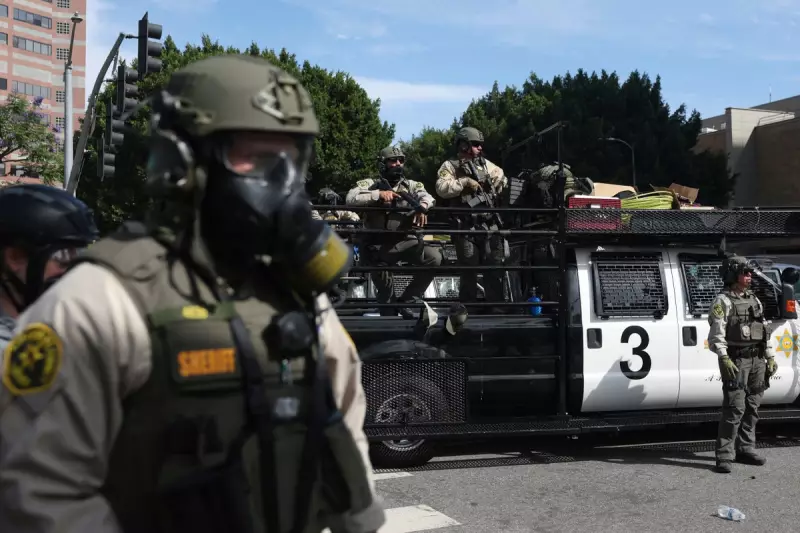
The Trump administration has launched legal action against the state of California over controversial new legislation that prohibits federal agents from wearing masks and mandates visible identification during operations.
Constitutional Clash Over Law Enforcement Practices
On Monday, federal authorities filed a lawsuit challenging California's groundbreaking laws that ban most law enforcement officers, including federal immigration agents, from covering their faces while conducting official business. The legislation, signed by Governor Gavin Newsom in September, represents the first state-level prohibition of its kind in the United States.
The new regulations specifically prohibit neck gaiters, ski masks and other facial coverings for both local and federal officers during official duties. Important exceptions exist for undercover operations, protective equipment such as N95 respirators, and tactical gear. Notably, the restrictions do not apply to California's state police forces.
Safety Concerns and Legal Arguments
Federal officials argue these measures jeopardise officer safety amid what they describe as "unprecedented" levels of harassment, doxing, and violence targeting law enforcement personnel. The lawsuit highlights multiple incidents where Immigration and Customs Enforcement (ICE) officers were allegedly followed and their families threatened.
One cited case involves three women in Los Angeles accused of livestreaming while following an ICE agent to his residence and posting the address on Instagram. "Given the personal threats and violence that agents face, federal law enforcement agencies allow their officers to choose whether to wear masks to protect their identities and provide an extra layer of security," the legal filing states.
US Attorney General Pam Bondi reinforced this position, stating: "California's anti-law enforcement policies discriminate against the federal government and are designed to create risk for our agents. These laws cannot stand."
Identification Requirements and Implementation Timeline
Alongside the mask prohibition, Governor Newsom signed separate legislation requiring law enforcement officers to wear clear identification displaying their agency and badge number while on duty. The twin laws establish specific deadlines for compliance.
Federal law enforcement agencies must issue a visible identification policy by January 1, 2026, followed by a mask policy by July 1, 2026. This staggered implementation aims to provide adequate time for agencies to adjust their operational procedures.
California officials defend the measures as necessary for accountability and public safety. Governor Newsom has previously criticised the practice of masked federal agents making arrests across the state as "dystopian."
Constitutional Challenges and Copycat Crimes
The federal lawsuit contends that California's laws violate the Supremacy Clause of the US Constitution, which prevents states from regulating federal government operations. Authorities argue the mask ban particularly discriminates against federal agencies because it exempts state police forces.
Meanwhile, the FBI has raised concerns about criminals exploiting the situation. In an October memo to law enforcement agencies nationwide, the bureau advised officers to clearly identify themselves in the field. The guidance referenced several incidents where masked individuals posing as immigration officers committed robberies and kidnappings.
California Attorney General Rob Bonta's office, which is reviewing the complaint, emphasised the public safety rationale behind the legislation. "It's problematic when Californians can't tell the difference between a law enforcement officer who is charged with protecting them and a criminal who is attempting to cause them harm," a spokesperson stated.
The office further noted that "the FBI itself has warned that the practice of ICE agents obscuring their identity has led to a rise in copycats committing crimes, threatening public safety and eroding trust in law enforcement."
The legal battle sets the stage for a significant constitutional test between state and federal authorities, with implications for law enforcement practices nationwide.





